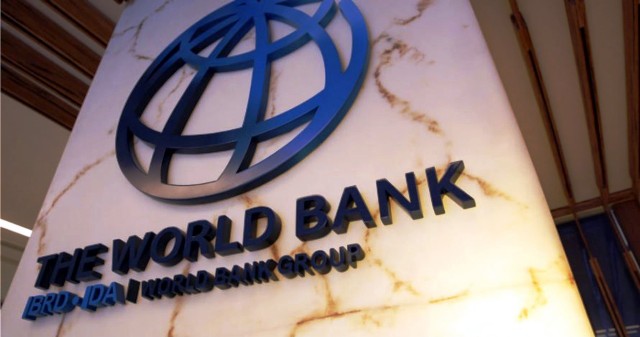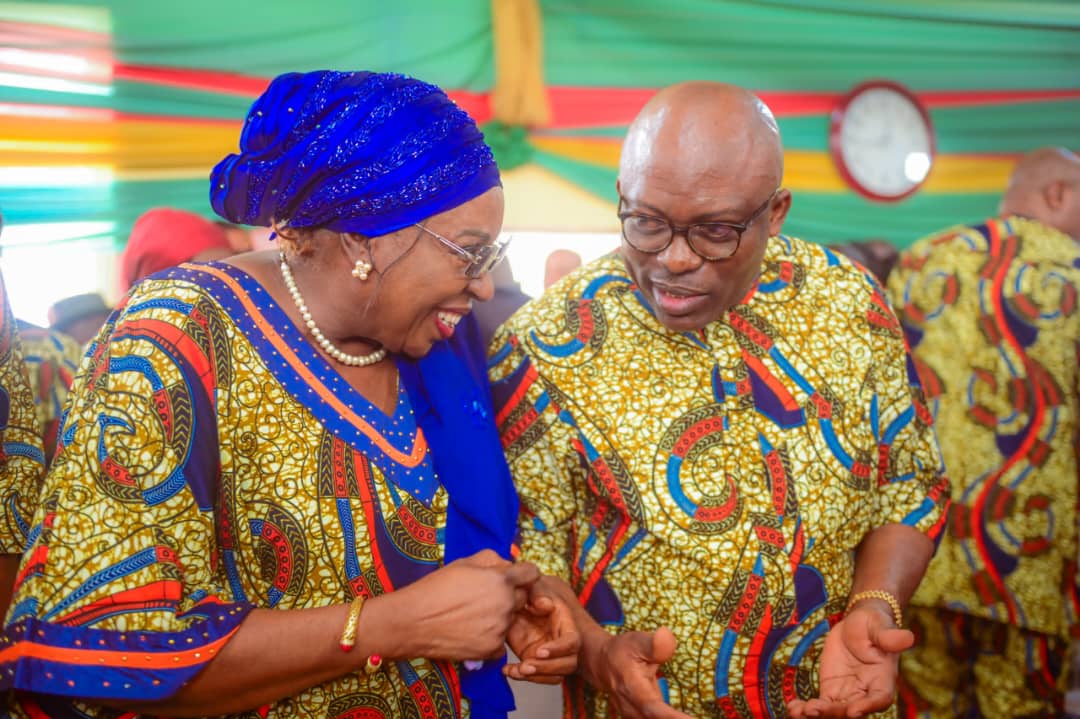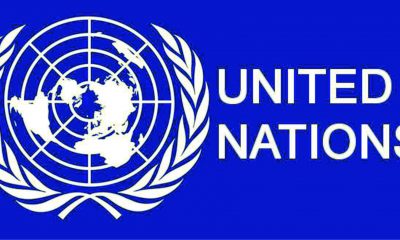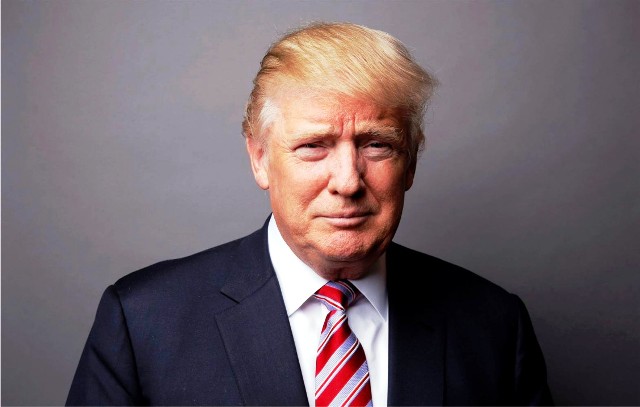News
Nigeria’s Economy Slipping, World Bank Warns …Dementia Rises By 400% In Nigeria -Report

The World Bank has warned that the Nigerian economy has been slipping since 1995, and this continued till 2018.
The bank, in its latest report, yesterday, on the regional economy titled, ‘Africa’s Pulse’, released the taxonomy of growth performance in sub-Saharan Africa, which focused on the macroeconomic and financial features that led to growth resilience on the continent.
According to the bank, the taxonomy is used to help identify the factors that are correlated with success or failure in economic growth performance in sub-Saharan Africa, with emphasis on macroeconomic and financial variables.
The analysis, it said, involved a series of macroeconomic variables for 44 sub-Saharan African countries from 1995 to 2018.
The key elements that determined the positions of each of the 44 sub-Saharan economies in the taxonomy, the World Bank said, included the level of income per capita of the countries; structural transformation, as captured by sectoral value-added share and sectoral employment share; and capital flows.
Others are level and composition of public sector indebtedness, as captured by the general government gross debt and its currency composition, and the outstanding external public debt.
The last of the indicators has to do with governance vis-a-vis government effectiveness, regulatory quality, control of corruption, voice and accountability, political stability, and absence of violence and rule of law.
According to the World Bank, the taxonomy compares the average annual GDP growth rates during 1995–2008 and 2015–2018 against predetermined thresholds.
It also categorised growth performance into five groups: falling behind, slipping, stuck in the middle, improved, and established. The five groups were further reclassified into three groups: Top tercile, middle tercile and bottom tercile.
The Bretton Wood Institution said, “If a country’s economic performance declined from 1995–2008 to 2015–18, the country is categorised in the bottom tercile, which includes ‘falling behind’ and ‘slipping.’ If a country’s growth rate remained invariant over time, between 3.5 and 5.4 per cent in both periods, it is categorised in the middle tercile (or stuck in the middle). If a country’s economic performance improved from 1995–2008 to 2015–18, with the growth of more than 5.4 per cent per year, the country is categorised in the top tercile, which includes the ‘improved’ and ‘established’ groups.”
Based on the above classification, the Nigerian economy was categorised alongside 18 other sub-Saharan African economies as slipping having recorded declined economic performance between 1995 and 2018.
The World Bank said, “The bottom tercile consists of 19 countries: Angola, Burundi, Botswana, the Republic of Congo, the Comoros , Gabon, Equatorial Guinea, Liberia, Lesotho, Mauritania, Malawi, Namibia, Nigeria, Sierra Leone, Eswatini, Chad, South Africa, Zambia, and Zimbabwe. These countries did not show any progress in their economic performance from 1995–2008 to 2015–18. For instance, their median economic growth rate decelerated, from 5.4 per cent per year in 1995–2008 to 1.2 per cent per year in 2015–18.”
The bottom performing economies, according to the World Bank, produce almost 60 per cent of the region’s total GDP, emphasising that the three largest countries in the region—Nigeria, South Africa, and Angola—and many commodity exporters are in this group.
Burkina Faso, Côte d’Ivoire, Ethiopia, Ghana, Guinea, Guinea-Bissau, Kenya, Mali, Rwanda, Senegal, and Tanzania made the top tercile.
The middle tercile countries are Benin, the Central African Republic, Cameroon, the Democratic Republic of Congo, Cabo Verde, The Gambia, Madagascar, Mozambique, Mauritius, Niger, Sudan, Sao Tomé and Príncipe, Togo, and Uganda.
The World Bank also cut its growth forecast for sub-Saharan Africa this year to 2.8 per cent from an initial 3.3 per cent.
The commodity price slump of 2015 cut short a decade of rapid growth for the region, and the bank said growth would take longer to recover as a decline in industrial production and a trade dispute between China and the United States take their toll.
The bank’s 2019 forecast means economic growth will lag population growth for the fourth year in a row and it will remain stuck below three per cent, which it slipped to in 2015.
“The slower-than-expected overall growth reflects ongoing global uncertainty, but increasingly comes from domestic macroeconomic instability including poorly managed debt, inflation and deficits,” the bank said.
The Bretton Wood Institution equally cut Nigeria’s growth forecast by 0.1 per cent.
It said, “Growth in Nigeria is projected to rise from 1.9 per cent in 2018 to 2.1 per cent in 2019 (0.1 percentage point lower than last October’s forecast).
“This modest expansion reflects stagnant oil production, as regulatory uncertainty limits investment in the oil sector, while non-oil economic activity is held back by high inflation, policy distortions, and infrastructure constraints.
“Growth is projected to rise slightly to 2.2 per cent in 2020 and reach 2.4 per cent in 2021, as improving financing conditions help boost investment.
“In Nigeria, although the manufacturing and non-manufacturing PMIs remained above the neutral 50-point mark—which denotes expansion—they fell further in February, due to weaker rises in output and new sales orders across firms.
“Household consumption in Nigeria has remained subdued, while multiple exchange rates, foreign exchange restrictions, low private sector credit growth, and infrastructure constraints have continued to weigh on private investment.”
The Chief Economist for Africa at the bank, Albert Zeufack, said the region could boost annual growth by about nearly two percentage points if it harnessed Information Technology more effectively.
“This is a game-changer for Africa,” he added.
However, the spokesperson for the Central Bank of Nigeria, Mr Isaac Okorafor, said the CBN under the current governor, Mr Godwin Emefiele, had shown so much ingenuity in managing the economy.
“You know the crisis that we have faced in the past three years. The bank has shown ingenuity in managing the situation and ensuring that everything is stable.”
Meanwhile, the Minister of Finance, Mrs Zainab Ahmed and the Governor, Central Bank of Nigeria, Mr Godwin Emefiele, have joined other economic experts from around the world to discuss issues affecting global economy in Washington DC, US.
The discussions are scheduled to hold between April 9 and April 14, under the auspices of the World Bank Group and the International Monetary Fund in Washington DC.
The 2019 Spring Meetings of the IMF and the World Bank is expected to bring together central bank governors, ministers of finance, parliamentarians, private sector executives, representatives from civil society organisations and the academia.
The experts will discuss issues of global concern, including the world economic outlook, poverty eradication, economic development and aid effectiveness.
The meeting will also feature seminars, regional briefings, press conferences and many other events with focus on global economy, international development and the world’s financial system.
Nigeria attends the meeting each year because of the quantum of investments and technical support it receives from both the IMF and the World Bank.
Although Nigeria currently has zero loans with the IMF, it enjoys technical support from the organisation.
The World Bank Group, on the other hand, is helping to fight poverty and improve living standards in the country through 33 Core Knowledge Product Reports and 29 ongoing National and Regional projects.
Meanwhile, Nigeria is still struggling with recent reports that ranked the country 6th among miserable people in the world, the country has again, scored another negative point with regards to its already battered health indices.
The country has again broken another unenviable record with the number of dementia cases growing by 400 per cent.
It would be recalled that dementia is a brain disorder that affects communication and performance of daily activities.
It is an umbrella term for a set of symptoms, including impaired thinking and memory, and often associated with the cognitive decline of ageing.
In Nigeria, sadly, little or no attention is given to mental health disorders.
Dementia victims are labelled witches or mentally derailed.
The level of awareness on mental health issues is poor and fraught with lots of misconceptions.
The culture of stigma and discrimination fuels access to care as mental disorders are linked to supernatural causes, including witchcraft, demonic possession, and even punishment from gods or ancestors.
In this part of the world, in most cases, these patients are abandoned to their fate.
Currently, over seven million Nigerians suffer from depression, according to the World Health Organisation (WHO) 2015 estimates.
The same report estimates that West Africa has about 4.8 million people with anxiety disorders.
These scary statistics may not be unconnected with the fact that Nigerians are becoming more stressed due to economic hardship and other stressful life events.
Nigeria is rated among top 10 countries that are over depressed and ranks among countries with the highest number of drug addicts, depression and dementia, among others.
Statistics by WHO show that an estimated 47.5 million people have dementia and there are 7.7 million new cases every year.
Developing countries like Nigeria account for 57.7 percent of the problem.
According to the Federal Ministry of Health, about 20-30 per cent of Nigerians suffer from mental illness.
The Permanent Secretary of the Ministry of Health, Abdulaziz Abdullahi, had at a Mental Health Action Committee and Stakeholders’ Workshop in Abuja disclosed that with a population of about 200 million, Nigeria had a high rate of mental illness.
This implies that Nigeria has about 60 million persons with mental illnesses.
However, as Nigeria battles with the mental disorders challenge with no policy on mental health in place, a study by the Journal of Global Health Reports published by the University of Edinburgh has revealed that dementia, a clinical syndrome caused by neuro-degeneration, has increased astronomically in Nigeria over the last two decades.
It is estimated that about 47.5 million people are living with dementia globally, with over two-thirds residing in Low and Middle-Income Countries (LMICs), including Africa, where there is very limited access to social protection, and relevant care, services and support.
This first national comprehensive study also revealed that several communities in Nigeria still link dementia to a normal process of ageing, with many patients stigmatised and abandoned in the belief that their condition is beyond any medical intervention.
Thus, many of those affected delay seeking medical care and endure poor outcomes.
However, the situation is exacerbated by poor mental health service access which partly results in high out-of-pocket expenses that few can afford.
It has been estimated that the number of dementia cases increased by over 400 per cent over a 20-year period, from 63,500 in 1995 to 318, 000 in 2015 among persons aged 60 years.
Prevalence was highest in North-Central; followed by North-West and South-West while the prevalence was also higher in urban settings compared to rural settings.
Alzheimer’s disease, one of the subtypes of dementia, had the highest prevalence while other dementia subtypes had prevalence rates less of than 1 per cent In the views of the Lead Researcher, the Centre for Global Health Research, University of Edinburgh, Dr. Davies Adeloye some of the factors responsible for the prevalence of this disease include genetic, cultural, and nutritional variation in the country.
He urged the government to provide comprehensive care and support institutions for people living with dementia as this was currently lacking in the country.
Adeloye advocated for a bill broadly focused on protecting the rights of individuals with mental disorders and setting standards for mental health practice in the country.
It is, therefore, important for policymakers to direct efforts at ensuring adequate infrastructure, personnel, training and research that focus on dementia, among other important mental health needs, in Nigeria.
Adeloye, who noted that 318,000 persons were affected as at 2015 regretted said to prevent the disorder there is need for Nigerians to maintain a healthy lifestyle by eating a healthy, balanced diet, maintaining a healthy weight, exercising regularly, keeping alcohol to a minimum level, stopping smoking and keeping blood pressure at a healthy level.
Reacting to the findings, a Clinical Psychologist, Lagos University Teaching Hospital, Dr Juliet Ottoh, who also described dementia as a general term for a massive decline in mental ability said when is severe, it can interfere with an individual’s life activity.
She said lack of mentally stimulating activities, not exercising and not eating healthy and balanced food could predispose an individual to dementia.
Ottoh urged Nigerians to quit smoking and embrace regular medical check-up for early detection and treatment.
“There are many different mental disorders, with different presentations. They are generally characterised by a combination of abnormal thoughts, perceptions, emotions, behaviour and relationships with others.
“Mental disorders include Depression, bipolar affective disorder, schizophrenia and other psychoses, dementia, intellectual disabilities and developmental disorders, including autism. Stigma is a big problem in Nigeria. It prevents people from seeking treatment; nobody wants to be seen entering a psychiatric hospital,” she counselled.
News
Retirement: Ignore PSC’s Directive, Remain In Office, IGP Tells Officers

The Inspector General of Police, IGP Kayode Egbetokun, has instructed all police officers affected by the recent directive from the Police Service Commission (PSC) to disregard the order.
The PSC had directed officers who have served 35 years or reached 60 years of age to retire immediately.
A wireless message from the office of the Force Secretary, dated February 11, 2025, stated that the IGP “strongly directs all officers affected by the PSC’s directive to stay action, pending further instruction.” Officers were told to comply strictly with this order.
Last week, PSC spokesman Ikechukwu Ani, explained that the commission’s order followed a review of its previous stance from the 24th plenary meeting in September 2017, allowing force entrants to use their enlistment date rather than their initial appointment date.
The commission cited inconsistencies with Public Service Rule No. 020908, which mandates retirement after 35 years of service or upon reaching 60 years of age.
However, the PSC clarified that it does not have the constitutional authority to determine the appointment or retirement of IGP Egbetokun.
News
Be Consoled, God Who Gives, Also Takes, Fubara Tells Principal Secretary

Rivers State Governor, Sir Siminalayi Fubara, has extolled the sterling motherly virtues of late Mama Ayebadieye Edward Igbeta, and urged the children not to deviate from those valuable lessons she had taught them.
Late Mama Ayebadieye Edward Igbeta (79 years) is the mother of Dr Ayebaesin Jacob Beredugo, the Principal Secretary to Governor Fubara.
The Rivers State Governor, who described Dr Beredugo as a brother, trusted ally and key stakeholder of his administration, urged him to be consoled in God and bear the loss with fortitude.
Governor Fubara gave the advise at the funeral service in honour of late Mama Ayebadieye Edward Igbeta at the Cathedral Church of St Luke, Anglican Communion in Nembe City, Nembe Local Government Area of Bayelsa State yesterday.
The Rivers State Governor said: “We are here as a government to show that in this difficult time, we stand with him. We know that there is no consolation here that can fill the gap of this loss, more especially the loss of a mother.
“But, we want to draw his mind to the good Book: that it is the Lord that giveth, and it is also the Lord that taketh. And he takes for a reason.
“We live in a corrupt world, and when you are a saint in the world, when it pleases the Almighty and He believes that He doesn’t want you to be corrupted, He takes away the soul to a better place where death is no more, where you don’t have to look for food again, where you have peace.”
Governor Fubara expressed strong belief that given the way Mama had lived and the good virtues that had been read out and said about her, there is no doubt that she will be in a good side in heaven.
The Governor decried the current condition of the cathedral where the funeral service held and committed the support of the Rivers State Government to ensure the completion of the building in memory of late Mama Ayebadieye Edward Igbeta
“We have been made to understand that the Cathedral needs strong support. We are willing to support the completion of the Cathedral. We will support the building in memory of Mama with the sum of N50million”
Delivering the sermon on the topic; “Hope in the face of death”, Bishop of the Diocese of Western Izon, Rt. Rev. Victor Okporu, said those who are confidently expecting positive future must also believe in Jesus Christ, repent of their sins, and be prepared to spend eternity with Him.
Reading the biography of the late Madam Ayebadieye Edward-Igbeta, brother of the decreased, Mr Godwin Ekine, said his late sister was an embodiment of love, care, peaceful and kind-hearted, and touched lives through her generosity and compassion.
Friends and well-wishers from Bayelsa, Rivers and Delta states, some of whom shared fun memories of the late matriarch, were later hosted to a funeral reception at King Koko’s Square in Nembe Town.
Also at the burial were the State Deputy Governor, Prof Ngozi Odu; Speaker, Rivers State House of Assembly, Rt Hon Victor Oko-Jumbo; member representing Ikwerre/Emohua Federal Constituency in the National Assembly, Hon Boniface Emerengwa; and Chief of Staff, Government House, Dr Edison Ehie.
Others are Head of Service, Dr George Nwaeke; Attorney General and Commissioner for Justice, Dagogo Israel Iboroma, SAN, Dr Tamunosis Gogo-Jaja; Chief Hanny Woko; Amaopusenibo Fubara Hart; Chief Theodore Georgewill; members of the State Executive Council; Special Advisers; top politicians, leaders and stakeholders in the State; among others.
News
Old Boys Plan Rehabilitation Of GSS, Okehi
The Chairman of the Old Boys Association of Government Secondary School (GSS), Okehi Etche, Rivers State, Prof. Sir, Umunna Offor, has stated that the association would soon visit their alma-mater and rehabilitate decayed infrastructure and facilities in the compound.
The chairman made this assertion while speaking with some newsmen after an extensive meeting of the Old Boys in Port Harcourt, recently.
Sir Offor stated that since they left the secondary school, some years ago, most of the facilities and infrastructure built by then Rivers State Government had decayed and worn out.
“ However, being responsible ambassadors and Old Boys of the college, we would not fold our arms and expect government to rebuild everything in the school compound, hence, we have decided to come together and graciously assist our alma mater’, he said.
“The meeting was basically for like-minds to gather to find a way to help the school, it is a thing of joy to see and receive old school friends and comrades who have gone far in life and have excelled in their respective chosen fields”.
Speaking in the same vein, Engr, Lasbrey Amadi; (FNSE), who is also an old boy and former member of the House of Representatives, said the association would be working in synergy with the administrators of the school to ensure that in no distant time; there would be a massive face-lift in the physical infrastructure in the school compound.
Veering into politics in Nigeria of today, Engr, Amadi, said that god-fatherism in politics had seriously killed the gains and beauty of democracy in Nigeria and quickly urged politicians to always play-down the issue of god-fatherism in politics and ensure good governance in the country.
In his comment, the Public Relations Officer (PRO) of the Association, Mr Goodluck Nwaobilor, said the door of the association is still wide open for new members who finished from the school to join and work towards taking the association to higher level.
-
News3 days ago
Telecom Operators Dismiss Talks With NLC On Tariff Hike
-
Politics3 days ago
How Akande Lied Against Me Over Bola Ige’s Case – Ladoja
-

 News20 hours ago
News20 hours agoWFP Votes $2.5bn To Fight Hunger, Malnutrition In Nigeria
-

 Editorial18 hours ago
Editorial18 hours agoHIV, Transiting From Donor Dependence
-
Rivers3 days ago
Police Confirm Vehicle Insurance Policy Enforcement In Rivers
-
Nation3 days ago
Foundation Seeks Community Approach To Tackle Climate Change
-
News20 hours ago
Old Boys Plan Rehabilitation Of GSS, Okehi
-
Business3 days ago
Oil Production Resumption: Ogoni Youths Seek Inclusion In FG’s Plans

